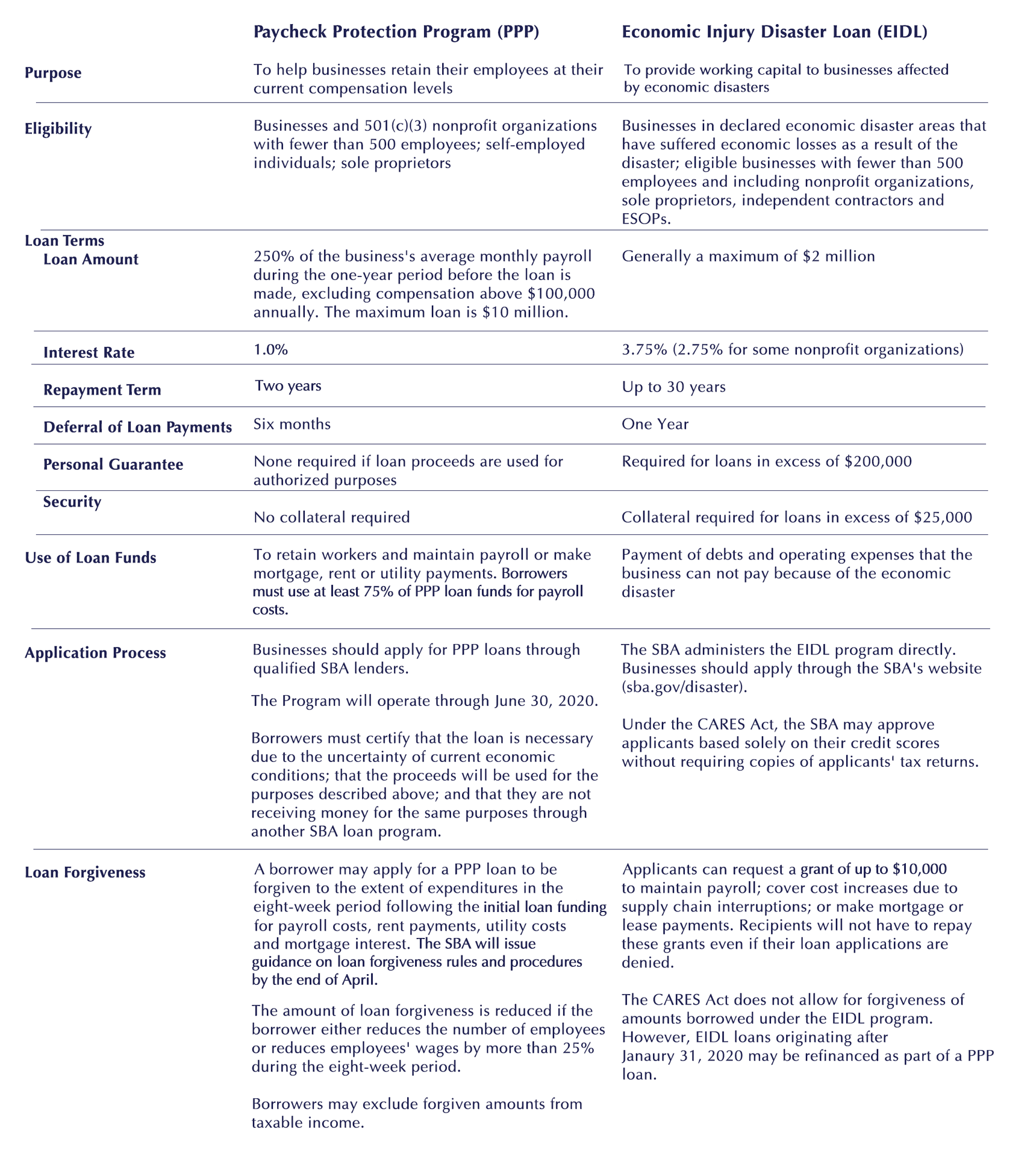The SBA announced on April 16 that all of the PPP’s initial funds have been exhausted. Banks may not accept PPP applications unless Congress provides more funding for the program.
Updated April 13, 2020
The COVID-19 pandemic has far reaching implications. To help small businesses through this difficult time, the federal government passed the CARES Act. In this Act, there are two programs of particular interest to small businesses: the Paycheck Protection Program (PPP) and the Economic Injury Disaster Loan (EIDL). These programs are administered by the Small Business Administration and may provide much-needed funding to help businesses cope with the economic fallout from the COVID-19 pandemic. PPP is a new loan program and the Act made significant modifications to the SBA’s existing EIDL program.
The chart below outlines the provisions of both programs. A borrower may apply for loans under both the PPP and the EIDL program, but may not use funds from both programs to pay the same expenses.
The federal government is still finalizing its administrative rules and we will update our analysis as more information becomes available. In the meantime, please let us know if you are interested in either of these programs. We are available to help in any way we can as you navigate this unprecedented situation.

Contact Us
Disclaimer of Liability
Our firm provides the information in this article for general guidance only, and does not constitute the provision of legal advice, tax advice, accounting services, investment advice or professional consulting of any kind. The information provided herein should not be used as a substitute for consultation with professional tax, accounting, legal or other competent advisors. Before making any decision or taking any action, you should consult a professional advisor who has been provided with all pertinent facts relevant to your particular situation. Tax articles in this blog are not intended to be used, and cannot be used by any taxpayer, for the purpose of avoiding accuracy-related penalties that may be imposed on the taxpayer. The information is provided “as is,” with no assurance or guarantee of completeness, accuracy or timeliness of the information, and without warranty of any kind, express or implied, including but not limited to warranties of performance, merchantability and fitness for a particular purpose.
Blog
Nonprofit Insights

